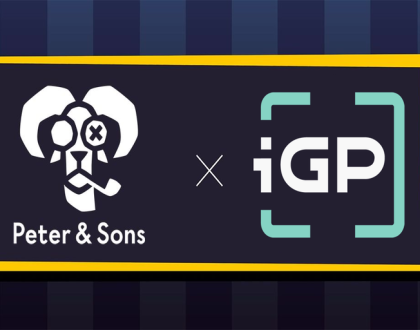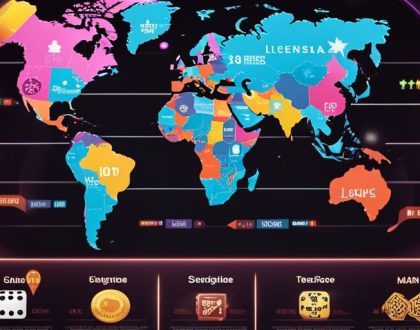The Path to Acquiring an iGaming License

Most aspiring iGaming entrepreneurs are aware that obtaining a license is a crucial step towards launching a successful online gambling platform. This comprehensive guide examines into the intricate process of acquiring an iGaming license, highlighting key steps, requirements, and challenges involved. Navigating the regulatory landscape in different jurisdictions can be complex and time-consuming, but with thorough preparation and adherence to stringent compliance measures, securing an iGaming license is within reach. From understanding the legislation and regulations to preparing a thorough application and undergoing rigorous background checks, this blog post provides valuable insights into the fundamental aspects of acquiring an iGaming license.
Understanding iGaming Regulations
International Regulatory Landscape
The landscape of iGaming regulations is complex and constantly evolving. Various countries have their own sets of rules and regulations governing online gambling. As a result, navigating the international regulatory landscape can be challenging for operators looking to expand their reach beyond their home country. It is imperative for iGaming operators to stay informed about the regulatory requirements in each jurisdiction they operate in to ensure compliance and avoid legal issues.
Key Regulatory Authorities in iGaming
On the global stage, several key regulatory authorities oversee the operations of iGaming companies and ensure that they adhere to strict standards. Organizations such as the Malta Gaming Authority, the United Kingdom Gambling Commission, and the Alderney Gambling Control Commission are recognized as leaders in regulating online gambling activities. These authorities enforce compliance with licensing requirements, monitor operators to prevent money laundering and underage gambling, and protect players by ensuring fair gaming practices.
Regulatory oversight from these authorities is crucial for maintaining the integrity and credibility of the iGaming industry. Operators must demonstrate transparency and accountability in their operations to earn and retain the trust of both regulators and players. Non-compliance with regulatory requirements can result in hefty fines, suspension or revocation of licenses, and irreparable damage to a company’s reputation.
Preparing for the Application
Eligibility Criteria and Documentation
Even before starting the application process for an iGaming license, it is imperative to understand the eligibility criteria set forth by the regulatory authority in the target jurisdiction. This includes meeting financial requirements, having a clean criminal record, and demonstrating an ability to operate an iGaming business responsibly. Documentation will play a crucial role in showcasing your eligibility and suitability for a license.
Building a Compliant iGaming Platform
Even the most seasoned iGaming operators must ensure their platforms are compliant with regulatory standards before applying for a license. Preparing your iGaming platform for scrutiny involves implementing robust security measures, ensuring fair gameplay algorithms, and adhering to responsible gambling practices. A failure to meet these requirements could result in delays or even rejection of your license application.
Platform: Building a compliant iGaming platform involves a mix of technical expertise, regulatory knowledge, and a commitment to transparency. It is imperative to conduct thorough testing and audits to identify and rectify any potential compliance issues. Maintaining detailed records of these processes will demonstrate your dedication to operating a legitimate and trustworthy iGaming operation.
The Application Process
Step-by-Step Guide to Applying for an iGaming License
Unlike other license applications, acquiring an iGaming license is a meticulous process that requires attention to detail and adherence to strict regulations. The application process can vary depending on the jurisdiction you are applying to, but there are some common steps that most applications will include.
| Step | Description |
| Step 1 | Complete the application form with accurate information. |
| Step 2 | Provide all necessary documentation, such as financial statements and background checks. |
| Step 3 | Pay the required application fee. |
| Step 4 | Undergo a thorough review process by the regulatory body. |
Tips for a Successful Application
The application process for an iGaming license can be highly competitive, so it’s crucial to present a strong case to regulators. Some key tips for a successful application include conducting thorough research on the jurisdiction’s requirements, ensuring all documentation is accurate and up to date, and being transparent throughout the process.
- Research the jurisdiction’s requirements thoroughly before starting the application.
- Provide accurate and updated documentation to support your application.
- Be transparent and cooperative with regulators during the review process.
Guide to the Application process should emphasize the significance of following guidelines meticulously to increase the likelihood of a successful outcome. Complying with all requirements and submitting accurate and complete information is important to avoid any delays or rejections. Though the process may be rigorous, demonstrating transparency and honesty can strengthen your application and build trust with regulatory authorities.
Post-License Acquisition
Maintaining Regulatory Compliance
Not adhering to regulatory standards after acquiring your iGaming license can result in severe consequences, including fines, suspension, or even revocation of your license. It is crucial to consistently monitor and update your systems to ensure compliance with the ever-evolving regulations in the iGaming industry.
Renewing and Upgrading Your iGaming License
PostLicense Ensuring the continuous validity of your iGaming license is important for the sustained operation of your business. An iGaming license is not a one-time deal; it requires regular renewal and, in some cases, upgrade to adapt to changing regulatory requirements and industry standards. Failure to renew or upgrade your license promptly can lead to disruptions in your operations and financial losses.
An iGaming license renewal typically involves submitting updated documents, financial statements, and compliance reports to the regulatory authority. Failure to renew your license before the expiration date can result in temporary suspension of operations, impacting your revenue and reputation. Upgrading your license may be necessary to expand your operations or offer new services, requiring a thorough review process by the regulatory body to approve the changes.
To wrap up
Now, understanding the path to acquiring an iGaming license is necessary for any operator looking to enter the online gambling market. From conducting thorough research on jurisdictional requirements to preparing a comprehensive application, each step in the process is critical to obtaining a license successfully. By adhering to the regulatory guidelines, maintaining transparency, and demonstrating a commitment to responsible gaming practices, operators can increase their chances of securing an iGaming license and establishing a reputable online gambling platform. Navigating the complexities of the licensing process with diligence and attention to detail is crucial for long-term success in the iGaming industry.
FAQs:
What are the key regulatory authorities in iGaming?
The main regulatory authorities include the Malta Gaming Authority, the United Kingdom Gambling Commission, and the Alderney Gambling Control Commission, among others.
What are the eligibility criteria for obtaining an iGaming license?
Eligibility criteria typically involve financial stability, a clean criminal record, and the ability to operate an iGaming business responsibly.
What steps are involved in the application process for an iGaming license?
The application process usually includes completing forms, providing necessary documentation, paying fees, and undergoing a thorough review by the regulatory body.
What are the consequences of non-compliance with iGaming regulations post-license acquisition?
Non-compliance can result in hefty fines, license suspension, or even revocation, along with damage to a company’s reputation.
How important is it to renew and upgrade an iGaming license?
Renewing and upgrading licenses is crucial for maintaining operational continuity, adapting to regulatory changes, and expanding services to meet evolving industry standards.
Michael
With over 20 years experience in web design, SEO and website promotion I always give you an expert advice in regard to any issues related to your Site Design, SEO, Internet Marketing, Promotion, Backlinks, Site Content. In order to help you find out what is missing or can be improved and get higher rankings in Google and more traffic.
Recommended Posts

Peter & Sons Alliance with iGaming Deck
May 20, 2024

Magnificent Power Wolf Fire Spirit™ Slot Game
May 20, 2024

The Global Language of iGaming Licenses
May 20, 2024




